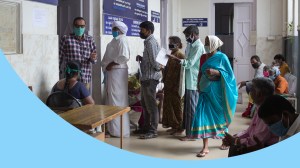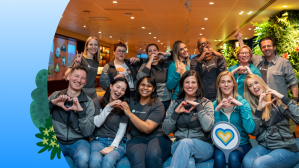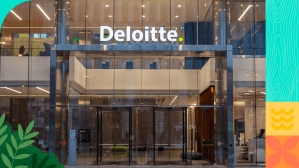Editor’s Note: In the face of overlapping global crises, Salesforce Co-Founder and Chief Technology Officer Parker Harris spoke at the NetHope Global Summit about how cross-sector partnerships – and a willingness to share strengths, resources, and assets – can solve big problems that none of us could solve alone.
When Marc and I founded Salesforce, we recognized that business had a key role in making the world a better place: That our company’s purpose should be grounded in a commitment to all stakeholders — customers, employees, partners, communities, the planet, and society.
Technology as a platform for purpose
This purpose has guided us over the last 22 years, particularly in the face of the pandemic. As organizations were forced to work remotely and adapt digitally, people found themselves relying on technology to respond to the crisis at hand.
From customers using Work.com to help reimagine the workplace, health organizations using Vaccine Cloud to manage their efforts to equitably distribute vaccines, and veterans using Slack to help coordinate evacuations in Afghanistan – technology has enabled communities to act with unprecedented urgency and collaboration.
And while this is worth celebrating, we must also recognize that technology alone isn’t enough. At its best, technology helps free us to be more creative, more curious, more human. But we have to find new ways to work together. Because none of us can do this important work alone.
Partnerships that power crisis-response technology
Recently, I had the distinct honor of speaking to the global nonprofit community at the NetHope Global Summit. The discussion I was a part of included Dr. Ahmed Al Meraikhi, the Special Adviser to the UN Secretary General.
Dr. Ahmed has been at the forefront of combating ongoing multi-crises, such as climate emergencies, refugee displacement, health inequity, and racial injustice. Partnerships like ours with Dr. Ahmed and the United Nations demonstrate the importance of technology in powering collaboration and cross-sector partnerships to support people during a crisis.
As Dr. Ahmed explained, “At UN agencies, we know how to address humanitarian and development needs, but it’s time we start thinking outside of the box. We must look at how we utilize technology to not only help people when they need it, but before they need it.”
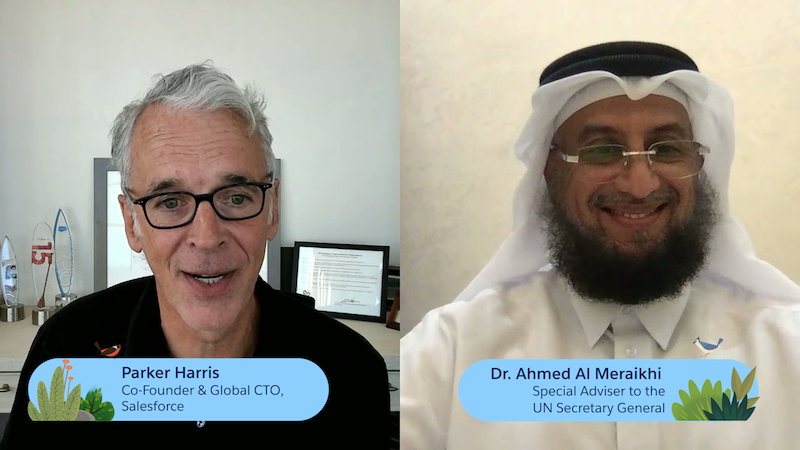
Innovation and collaboration requires streamlined integration across other technology products – like our integrations with Google and AWS – and access to an entire ecosystem of solutions. This integrated approach took shape for the United Nations High Commissioner for Refugees (UNHCR) last year.
In the face of climate emergencies and civil unrest, UNHCR used Salesforce to drive more successful fundraising campaigns to help displaced people.
The combination of Salesforce Marketing Cloud and Nonprofit Cloud allowed UNHCR to send more personalized donor messages and centralize their data to help step up fundraising results.
Co-innovation that drives trust
Technology that speaks the same language and cross-sector collaboration are key, but without trust in our relationships and our data, the two can’t function properly. Through our partnership with Gavi, The Vaccine Alliance, we saw how technology and trustworthy data can help respond quickly and innovate for the future.
At the height of the pandemic, Gavi and COVID-19 Vaccines Global Access (COVAX), a worldwide initiative aimed at equitable access to COVID-19 vaccines, quickly recognized that no one was safe from the threat of COVID-19 until everyone was safe. Together, the organizations set a goal of distributing 2 billion COVID vaccines to 190 countries by the end of 2021.
To meet that goal, they needed a single, secure portal for participating countries to confirm how many doses of the vaccine they needed. So Salesforce.org got to work, partnering up with Gavi and COVAX to find a solution. In only five weeks, a team of Salesforce.org volunteers and partners developed the COVAX Country Data Exchange. As of early October, more than 323.2 million doses were distributed by COVAX to 144 participating countries.
Dr. Bruce Aylward of the World Health Organization, a founding member of COVAX, highlighted the importance of partnership and trust in his conversation at NetHope with Amy Weaver, Salesforce President and Chief Financial Officer.
“What’s been interesting and challenging about this pandemic is that it’s taking place in an era where people have so much more access to information, data, and technology,” said Dr. Aylward. “This means we need to have an even deeper level of trust across all levels – from our partners, data, and the communities we’re serving – trust needs to be at the core.”
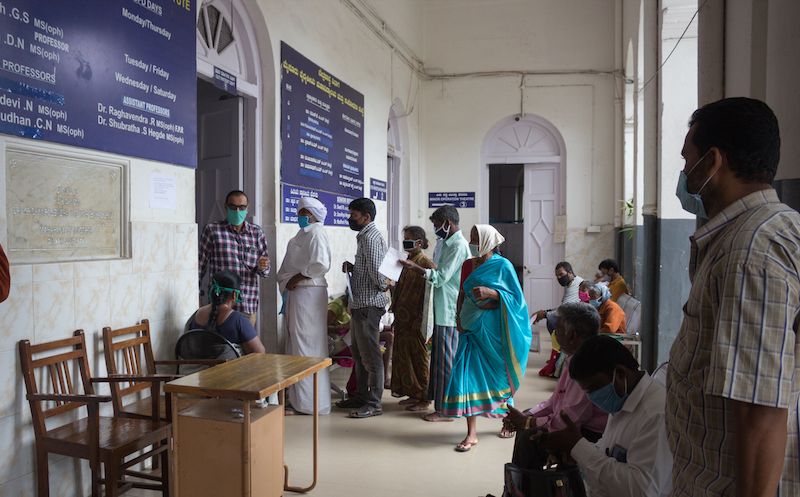
Moving toward a brighter future, together
It’s undeniable that technology has helped power us to move with unprecedented urgency and collaboration in the face of this multi-crisis environment. What used to take years is now taking us months, weeks, and even days.
But what’s even more clear to me is that when we activate across sectors and communities – when we’re willing to share strengths, resources, and assets – we can solve big problems that none of us could solve alone.
To read more about how technology can help us innovate in times of crisis, explore other relevant content:
- Learn more about how the humanitarian, conservation, and development community are using technology to power their purpose.
- Watch how other humanitarian, conservation and development nonprofits are using technology to address urgent challenges in times of crisis.
- Catch up on Amy Weaver’s conversation with the WHO’s Dr. Bruce Aylward at NetHope Global Summit
